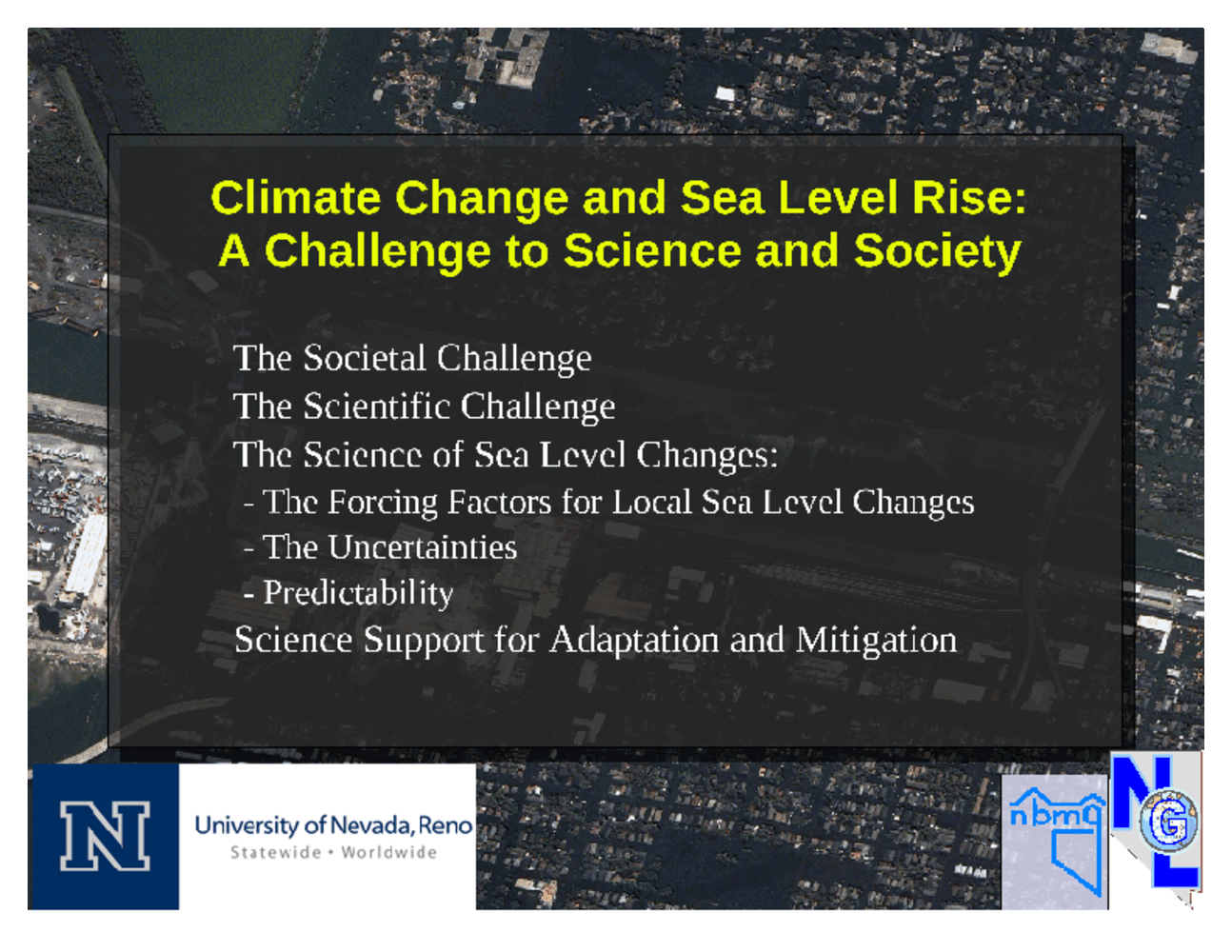
The presentation focuses on the challenges that coastal sea level changes caused by climate change pose to science and society. In many coastal areas, preparation for anticipated sea level changes exceeding half a meter or even meters will require severe adaptation strategies. The lead times required in order for taking meaningful actions are long and the costs are extreme. In order to meet this challenge, decision and policy makers turn to science for advice. Science, on the other hand, is challenge by the complexity of the processes forcing coastal sea level changes. Coastal Local Sea Level (LSL) is the output of many Earth system processes. Predictions of future LSL changes are associated with large uncertainties, which need to be communicated in an understandable and actionable way to those who decide on adaptation. After commenting on these mutual challenges in the next few slides, the science of sea level changes will be reviewed by first introducing the forcing processes for LSL changes, and then by looking at the uncertainties for some of these processes. Our ability to give quantitative advice depends to a large extent on the predictability of the individual processes. Unpredictabilities inherent to some of the forcing processes require a careful review of our general approach to climate change adaptation. The final part of the presentation returns to these challenges and sketches a possible way in which science could support the development of adaptation and mitigation strategies.